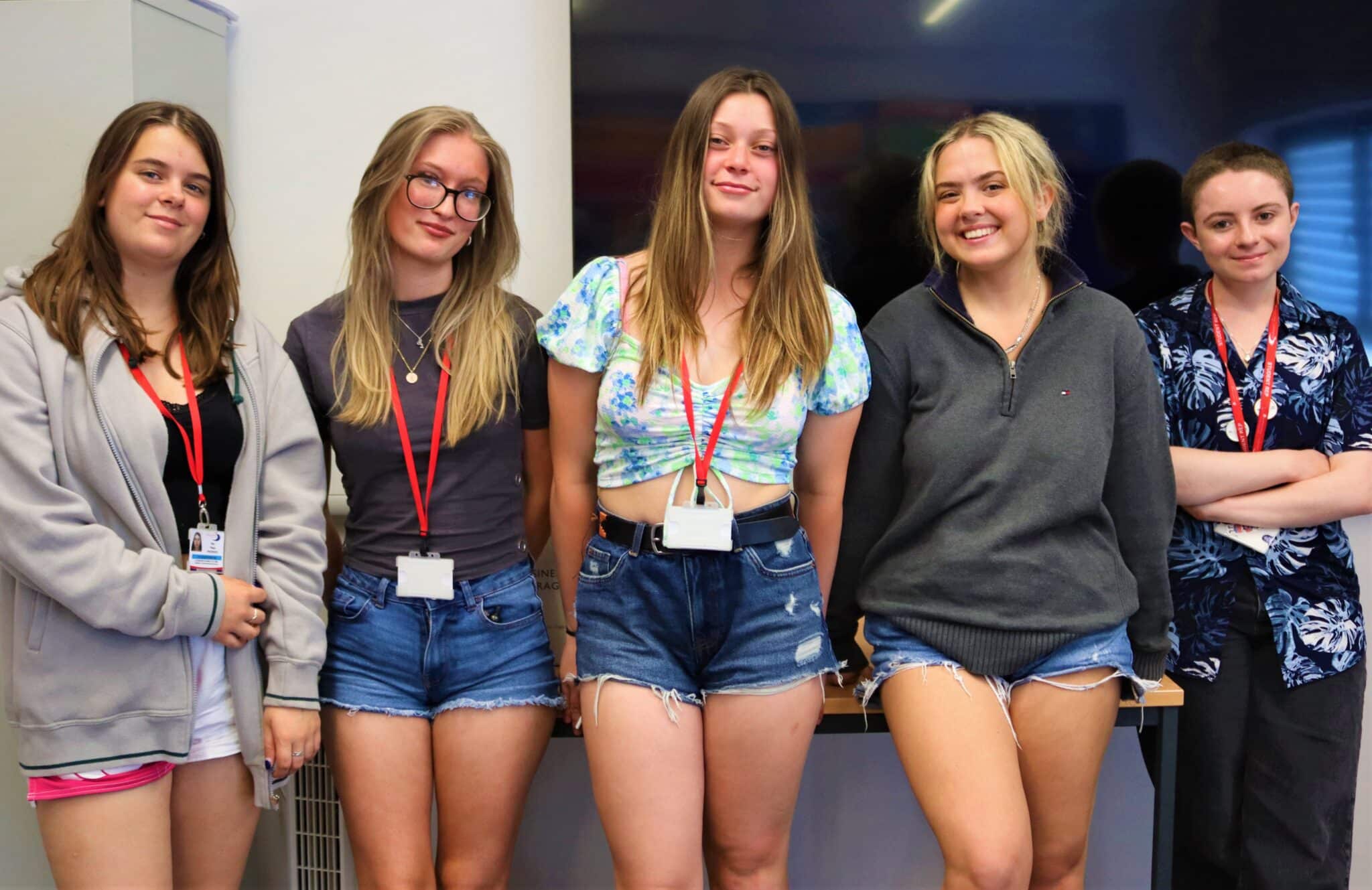Psychology, Criminology & Law students from Stratford-upon-Avon College recently undertook topical research projects to complete the first year of their course.
Each student was able to choose a topic to research that related to the Psychology segment of the course and the students selected a range of areas that could be applied to real life issues.

Sorrell Gowler, 18, studied how music tempo affects speed in performance. She chose this topic because: “I recently started driving and it made me start to think about if/how music can affect the speed of a person’s driving.”
Sorrell studied the effects using a clicks per second test and researched similar studies about music’s effect on sport performance and its uses in palliative care: “It is great to see how this type of research can be used in so many different areas.”
Zara Pearce, 18, studied if social media effects the perception of body image: “I did a presentation during my GCSEs on social media effects on mental health and this allowed me the chance to develop my research further.”
Zara found that a link could be seen between social media and eating disorders: “It was interesting that as well as the negative effect, there were also some positives; including how people’s recovery and stories could inspire others and show how/where to get help.”
Sky Phipps, 17, and Isobel Dickin, 16, both focused on agricultural topics for their studies. Sky focused on whether the area a person is born influences perceptions of agriculture and Isabel looked at the benefits and limitations of removing badgers that carry TB.
Isabel highlights why she was pleased to be able to choose her own research topic: “It was definitely good we got to choose. This is an area where I know lots of people personally who have strong opinions so it is a way to get peoples voices and opinions heard.”
Greyson Daws, 17, chose to research the difference of lives of transgender and cisgender students at college. Greyson spoke to participants from this college and hopes the research can relate to other colleges, commenting: “It is an important issue, especially right now. The news of Brianna Ghey, a trans student who was murdered earlier this year means that it is a topic which needs looking at.”
Psychology, Criminology & Law lecturer, Sharon Gerrard-Pickering, details how it is a useful project for the students to undertake: “This is a great opportunity as usually this is something that undergraduate students would do as part of their degree course. Undertaking a research project demonstrates that the students really understand research methods as they have to practically apply what they have learned in theory.”
She continued: “They gain a number of transferable skills, including analysing data, academic writing, time management, respecting ethics and presenting their research to small focus groups for critical feedback. Most of the students do not initially want to present in front of an audience but everybody is so pleased when they have done it and gained a new skill; this helps to build their confidence. They also have to write up their project according to Psychological reporting conventions as you would read in a specialist-subject journal. The critical feedback they receive from peers helps them to self-evaluate their own study and skills.”
Sharon was incredibly impressed with the work the students have completed: “Every year I am amazed by the quality of the research undertaken and this year is no exception. Students have really thought about research that has potential real-life application and will make a difference to policy and practice, for example, in farming, education and social media. I’m very impressed by the standard.”


























